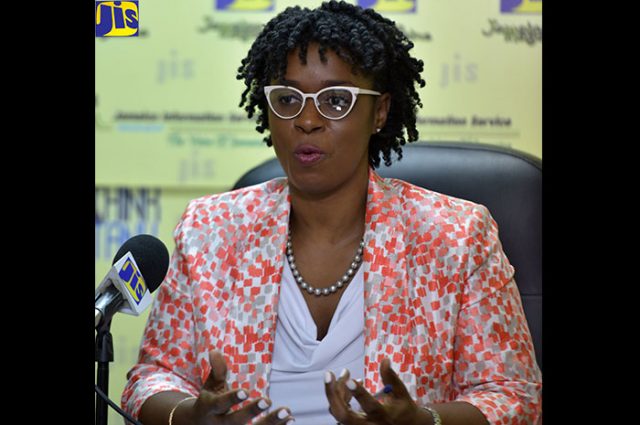OBSERVER: AS Jamaica prepares to take part in the 2021 Programme for International Student Assessment (PISA), members of the project management team at the Ministry of Education are clear on the outcomes being targeted.
To begin with, they are expecting to generate independent data to judge how Jamaican students match up with their counterparts on the international stage. That data, they anticipate, will identify strengths and expose gaps in the system and will, in turn, guide education policy to build on strengths or correct weaknesses, as the case may be.
Critically though, the ministry says the data is expected to give the country an in when applying to international funding agencies.
“At this point in time, the only means that Jamaica has of evaluating our education system are the national and regional examinations. The challenge, when we get on the world stage is that that data is not relevant in that context. So when we have to interface, particularly with international funding agencies, most times they want independent data to evaluate our system and we don’t have the information,” Dr Tamika Benjamin, national mathematics coordinator and member of the PISA management team told last week’s Jamaica Observer Monday Exchange.
“We have found ourselves in discussions with funding agencies and we don’t have any data, objective data, to speak to our system. This is one way of ensuring that we have a true sense of where the Jamaican education system is. We are hoping that we will get robust data that will give Jamaica a true sense of where our education system is on the world stage,” she added.
Commissioned by the Organisation for Economic Cooperation and Development, PISA is a survey of 15-year-old students whose knowledge, skills, competencies, and creative thinking abilities are assessed in the three components of reading, mathematical, and scientific literacy. It was introduced in 2000 and is administered every three years.
Jamaica will be the second English-speaking Caribbean country to participate in the study, following Trinidad and Tobago which was ranked 51 out of 70 countries in the 2015 round.
The Government of Jamaica is paying some 410,000 Euros to participate in the assessment, which will include the generation of a national report.
“A big part of us participating in PISA is to evaluate our education system,” Dr Benjamin reiterated. “Locally, we tend to say we know what our strengths and weaknesses are, and we may know on the ground, but in terms of seeing where we are in the global context, we are very limited if we are only assessing ourselves based on what we might see in a particular school.”
“We are likely to pick up weaknesses and challenges in terms of where students are; not just in whether they can read, it is also looking at the higher-level reading skills. That is something that we do not measure once our students leave grade four,” she continued.
Jamaica is also hoping to take lessons from countries and schools within similar contexts that have been improving since their first time participating in PISA. One example is the Dominican Republic, which members of the local PISA team have already visited for research purposes.
The PISA study will also evaluate external factors that impact learning outcomes such as teacher quality, contact hours, school resources, school culture, school leadership, teacher development mechanisms, parenting, and budget spending on education.
“We are not only going to look at the cognitive component, which is how the students would do, but we have an opportunity to see how other factors impact learning outcomes, and one of those considerations would be budget spending on education,” project team lead Marjorianna Clarke told the Observer.
In addition to per capita expenditure on education, other metrics in which the ministry says it is interested are gender gaps, equity, and inclusiveness.
“We will also be able to get our education system focused in the direction we want,” Clarke added.
The 2021 round of PISA testing will be administered from April to June across 88 countries. Students are randomly selected to participate.
CAPTION: National mathematics coordinator and member of the Ministry of Education’s PISA management team Dr Tamika Benjamin


